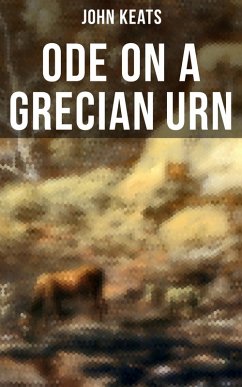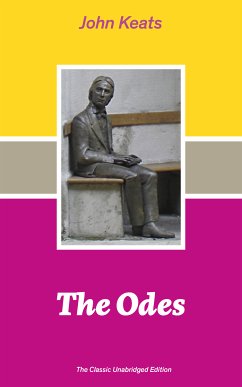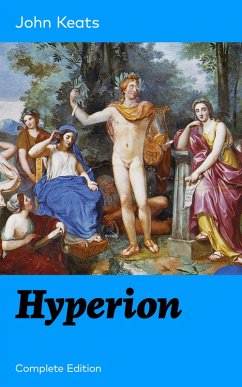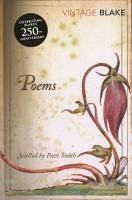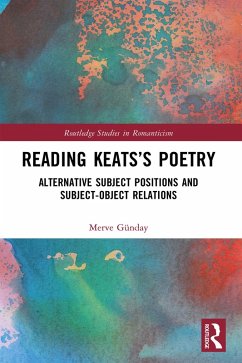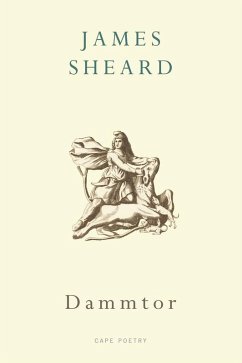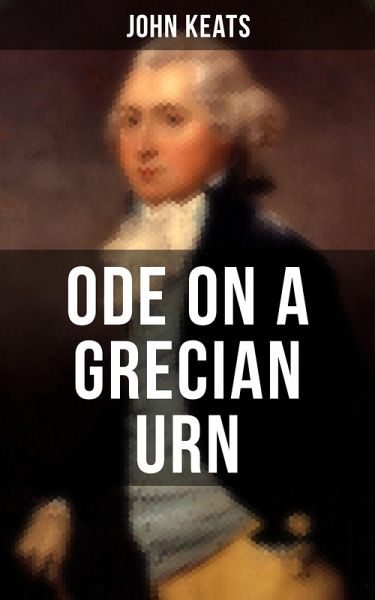
ODE ON A GRECIAN URN (eBook, ePUB)
Versandkostenfrei!
Sofort per Download lieferbar
0,49 €
inkl. MwSt.
Weitere Ausgaben:

PAYBACK Punkte
0 °P sammeln!
In 'Ode on a Grecian Urn' by John Keats, the reader is immersed in a lyrical exploration of art, beauty, and the passage of time. Keats uses vivid imagery and poetic language to depict scenes from Greek mythology frozen in time on an ancient urn, inviting readers to ponder the eternal nature of art and the fleeting nature of human existence. The poem is written in Keats' characteristic Romantic style, with a focus on emotion, imagination, and the natural world, making it a quintessential work of the Romantic period. Keats's ability to weave complex themes with exquisite language and imagery ma...
In 'Ode on a Grecian Urn' by John Keats, the reader is immersed in a lyrical exploration of art, beauty, and the passage of time. Keats uses vivid imagery and poetic language to depict scenes from Greek mythology frozen in time on an ancient urn, inviting readers to ponder the eternal nature of art and the fleeting nature of human existence. The poem is written in Keats' characteristic Romantic style, with a focus on emotion, imagination, and the natural world, making it a quintessential work of the Romantic period. Keats's ability to weave complex themes with exquisite language and imagery makes 'Ode on a Grecian Urn' a must-read for lovers of poetry and art history alike.
Dieser Download kann aus rechtlichen Gründen nur mit Rechnungsadresse in A, B, BG, CY, CZ, D, DK, EW, E, FIN, F, GR, H, IRL, I, LT, L, LR, M, NL, PL, P, R, S, SLO, SK ausgeliefert werden.




